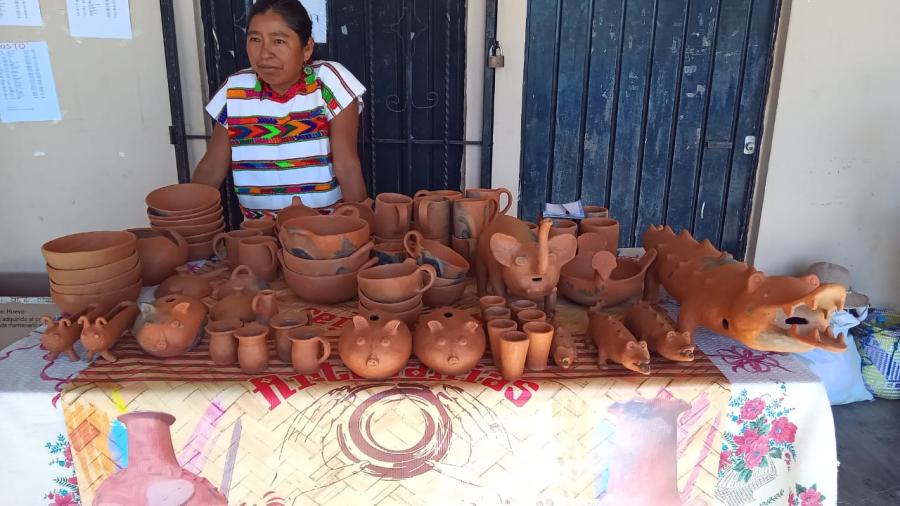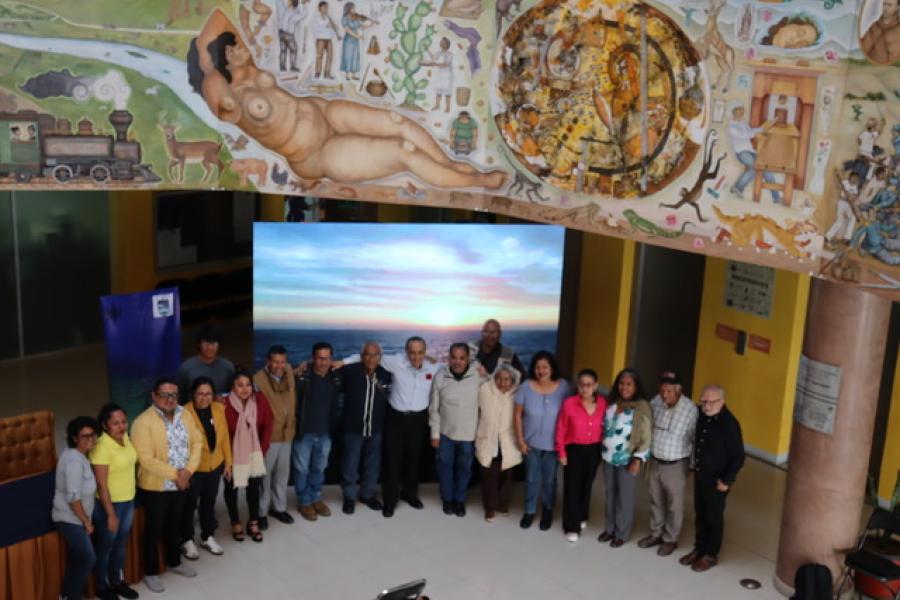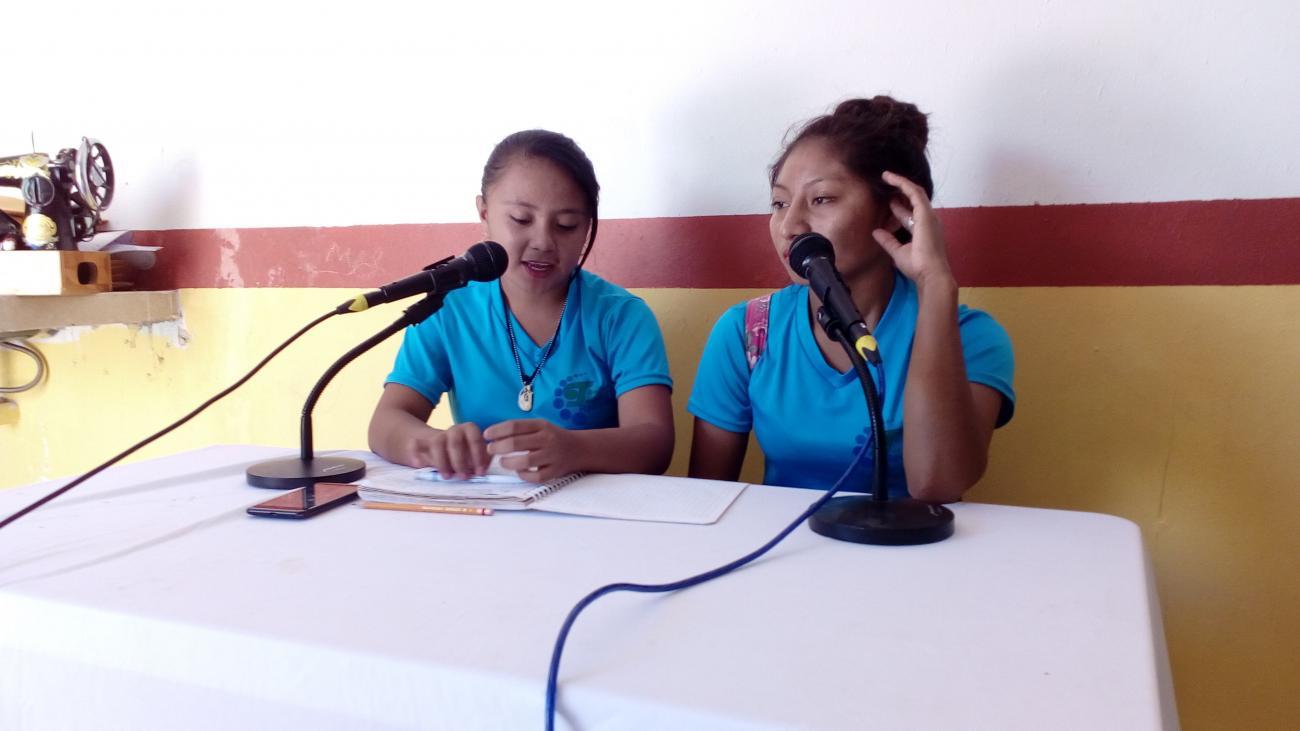
The Tuklik Communication Project in the areas of radio and video production and broadcasting is being implemented in six communities, in the municipalities of Mayapan, Cantamayec and Tahdziu in the southern and eastern regions of the Yucatan in Mexico. The three municipalities have a numerous Mayan population and a high degree of poverty and marginalization.
Through meetings and workshops with members of the three municipalities, we all agreed on the types of problems that our communities face. These problems modify the social, cultural, and ecological development of our Peoples and are reflected in issues like arson, child abuse and neglect, corruption, crime, domestic violence, drugs, elder care, emergency services, ethnic conflicts, health, hunger, inequality, and labor conflicts.


Map of the participating municipalities in the regions that form Yucatan. Source: Government of the State of Yucatan.
We agree that the lack of vision of the authorities does not contribute to solving the problems. Rather than proposing strategies grounded in reality, officials want to stay in power and promote inequality by watering down good practices, which at the end is reflected on the least organized communities.
Corn production is less common than two years ago, as many farmers find employment as day laborers in the main cities of the Peninsula, such as Merida in Yucatan, Cancun and Playa del Carmen in Quintana Roo, more lucrative. In addition to housework, women weave hammocks and cross-stitch embroidery for clothing. Most of the time their work is paid below the fair price. The majority of women who finish high school do not continue with their studies, they work at home or migrate to Merida to work in domestic services.
Between 2015 and 2016, Educación Cultura y Ecología A.C. conducted workshops and meetings on decision making processes that would uplift civil participation and proposals. The Ko'onex Tuklik M'uul Kuxtal Collective (in Peninsular Maya “Let's imagine our future together”), started as a citizen movement. Their objectives were to improve the conditions of the population, motivate community reorganization, disseminate information about civil rights, and increase civic participation to more than just voting in elections.

During the Cultural Caravan in Nenelá, the women of the Ko’oneex Collective interviewing a music band. April 2019.
We organized sport and art events for youth, as well as debates on social, environmental, and cultural issues. We raised awareness about the need to participate in the production of media. As a result, a youth network Tumben Tukul (renewal of thought) was formed in 2017.
Currently, these two collectives are in charge of the planning and implementation of communication programs such as production workshops and "learning through practice, reflection, and action." In 2017 and 2018, we conducted production training workshops and in January 2018 produced a live program for the first time in the town of Timul, Tahdziu. Since then programs have been broadcast through speakers and a 10-watt FM transmitter. Our team travels to one of the six communities and records the program on site. To expand the reach of the broadcasts, they are edited and published on our website and on Tuklik Project’s facebook page. The programs are also aired on Radio XEPET: The Voice of Mayans, a government radio station.
We identified the necessity of using media and the importance of producing programs from a collective and youth perspective through interviews and opinions. When we learned about Cultural Survival’s Call for Proposals, immediately, we imagined continuing with the radio learning process, and we also wanted to do sessions to reflect on our journey. We proposed short, medium, and long-term plans that would strengthen the Tuklik Project in the region.
We proposed trainings on how to make informative radio programs, since the mainstream media broadcasts sensationalist news, not from our perspective. We believe that we have the right to make our reality known and also to report on events based on our own research. As such, there is a need to learn new formats to broaden our opportunities to communicate. We also proposed to learn about the experiences of another radio station with recognized community experience, which for us is an important ingredient to connect and visualize what we want to accomplish.
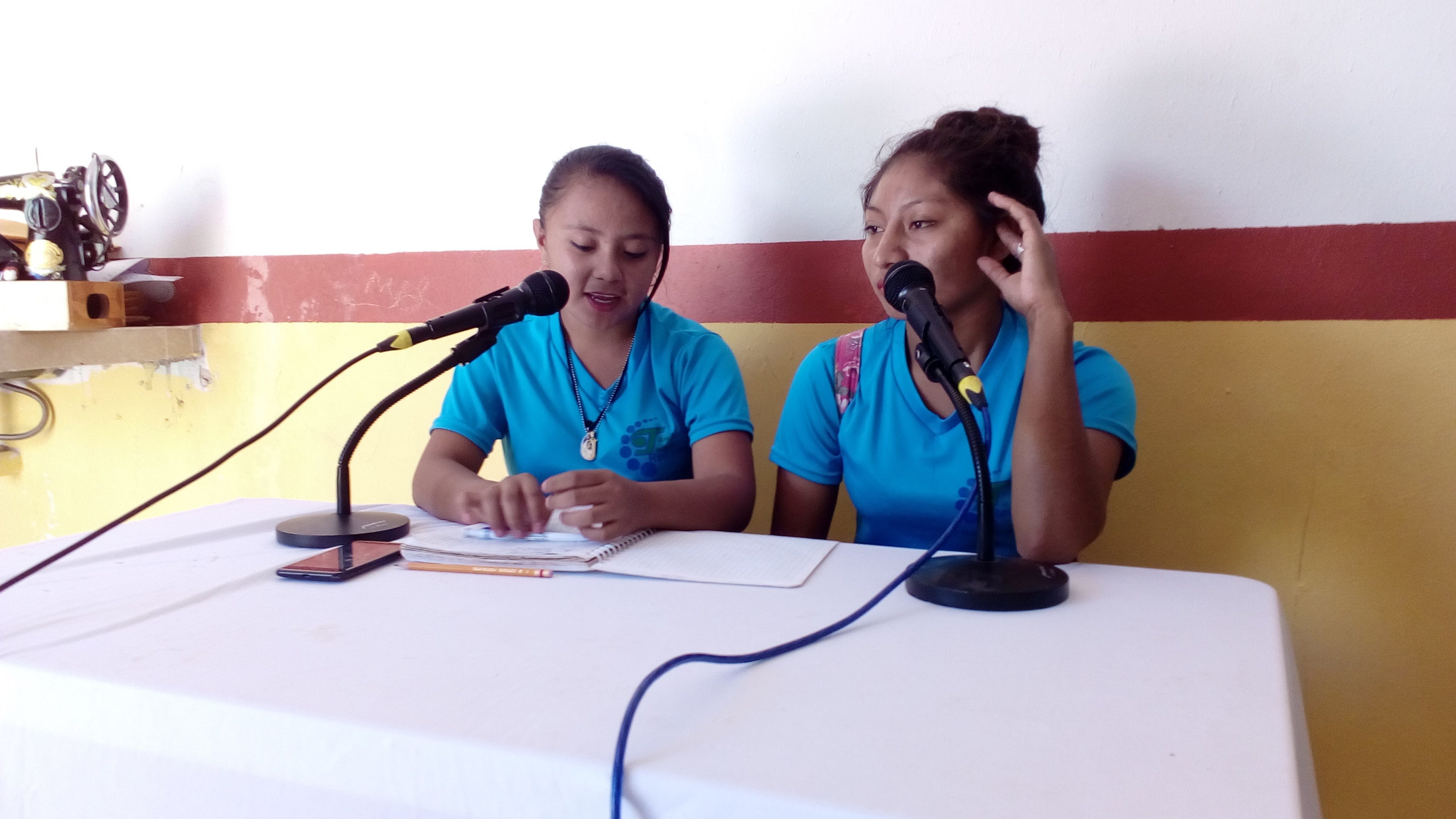
From left to right, Nataly Maas Cab and Mayra Cherrez, during the beginnings of Radio Tuklik, May 2018.
We were thrilled by the grant approval by Cultural Survival. It was the first time that the Ko’oneex Collective participated in an application process and was approved. We consider it a great responsibility and we started to implement the project right away. Over the course of several sessions, we affirmed our commitment to Radio Tuklik and our towns. We recognized the values that we put into practice when carrying out each program, the steps taken, the dedication, and challenges that have been overcome.
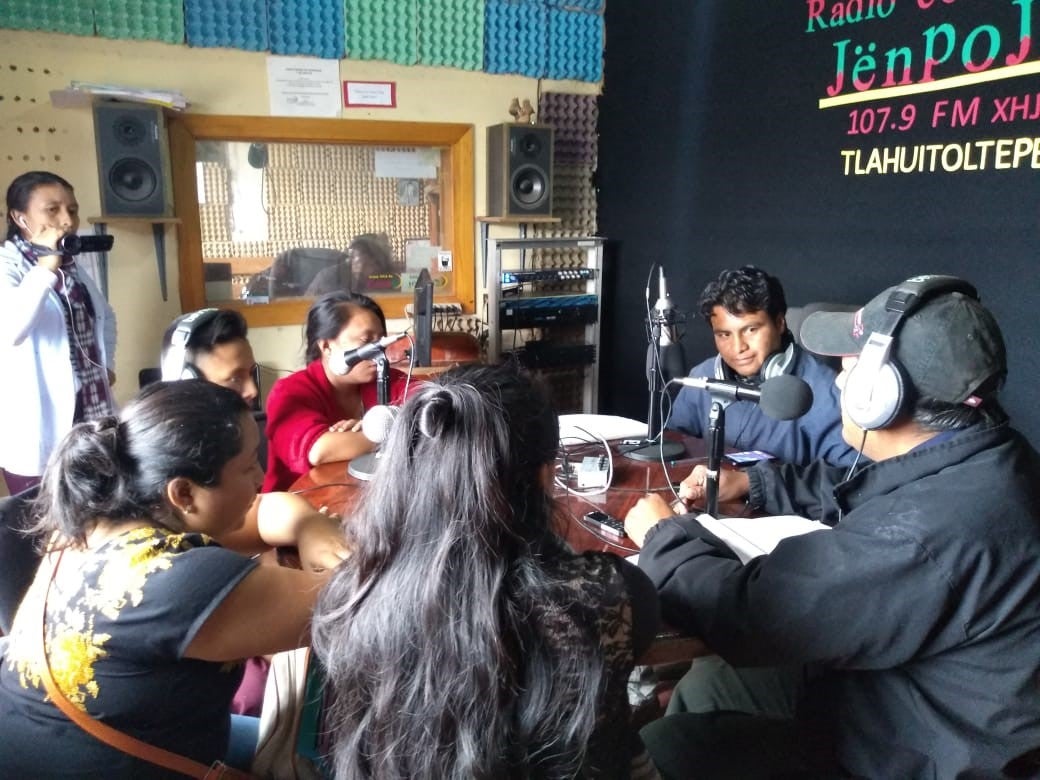
Visiting Radio Jënpoj, July 2019.
In the first session we had to provide evidence of our historical trajectory, the interests of each member, the learnings, the results, the negative comments that made us feel discouraged; the achievements in each program. Our dreams to see Radio Tuklik on the air for many years. We analyzed the three main ideas - organizational, social and economic - that will help us build a sustainable project. We proposed specific actions and some of the most outstanding results are:
- Social: Maintain programming in Indigenous languages; share our knowledge with other people; and recognize the work of people who make up the Radio Tuklik .
- Organizational: Motivation to continue with activities and propose ideas to move forward; offer training to other youth and children; create a council to guide Tuklik's work; be responsible and punctual.
- Economic: Have control of resources to achieve goals; follow up on projects at all times; make collective decisions with the community when selecting spaces to do radio programs and workshops.

The second part of strategic planning was a visit to Radio Jënpoj, in Tlahuitoltepec, Oaxaca. During the visit, participants were organized into three teams to learn about the radio station and the community. We received information directly from governmental, organizational, and community systems about cultural practices and the impact of Radio Jënpoj in the community. Their examples and values will be used in our organizational structure.
Learning about the survival of the radio station for almost 18 years made us reflect on the future and the challenges that we will face. We remember the words from Rubén Martínez Pérez, coordinator of Radio Jënpoj: "We have managed to continue because we have the will to do so. When there is a will, everything can be achieved." These words inspire us to continue and not to let our guard down.
The third part was to define our mission and propose short, medium and long term actions. In the short term, we proposed informal talks in each community, being part of the production and training team, as well as producing various types of programs. The mid-term actions include transitioning from being a radio management group to seeking advice and extending transmission hours. The long-term actions include synchronizing programming so that it is heard at the same time in the six communities as well as obtaining a medium-range transmitter for simultaneous transmission.
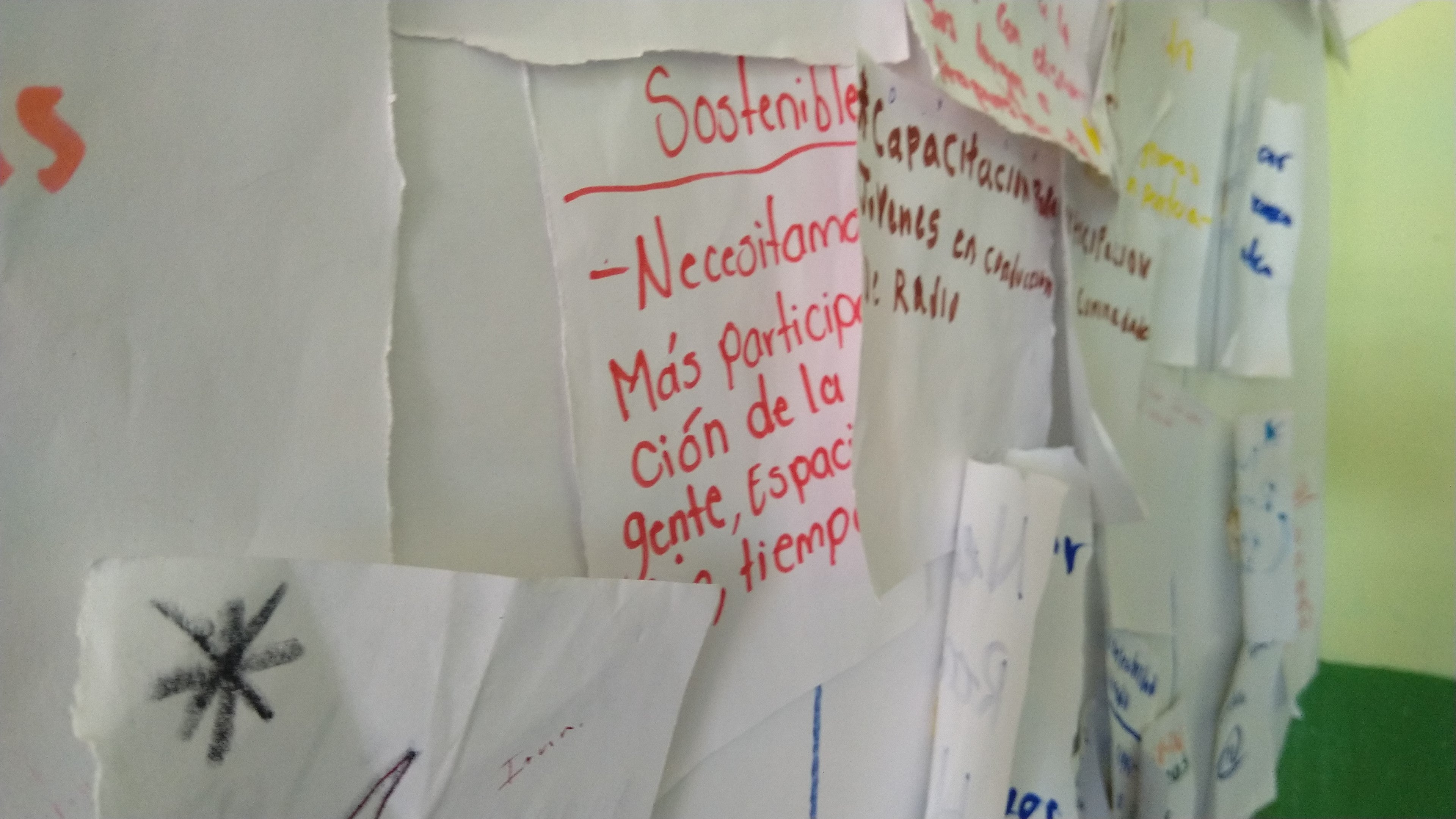
Photo of the outcomes of the first session of the planning workshop, July 2019.
In the workshop on production, we analyzed how the media in our towns broadcasts events from other municipalities. We shared our concern about the way they deal with issues in our region, as they often describe them incompletely, nor do they disseminate them in our Mayan language.
We also learned that when we see, read, and listen to the media, we do not do it consciously. We do not know what methodology or structure is used. We learned that the information is transmitted depending on the reporter’s and media’s interests. This is why sharing facts of our communities is so important.
We are thrilled to be on the air broadcasting and at the end say: "Produced for Radio Tuklik ..." One of our objectives is to produce programs, publish them on our platforms, and share them with other groups.
From recent workshops and looking at other radio experiences, we know that we need to improve the social conditions of our neighbors. We know that covering different realities is an important strategy in the face of an unhealthy political context, which tries to keep us on the periphery and excludes us in decision-making. We do not want to lose the compass to continue our dreams. We want to stay informed through the use of our Mayan language and take advantage of radio to share our voices, hoping that this will happen in more than one community in the near future.
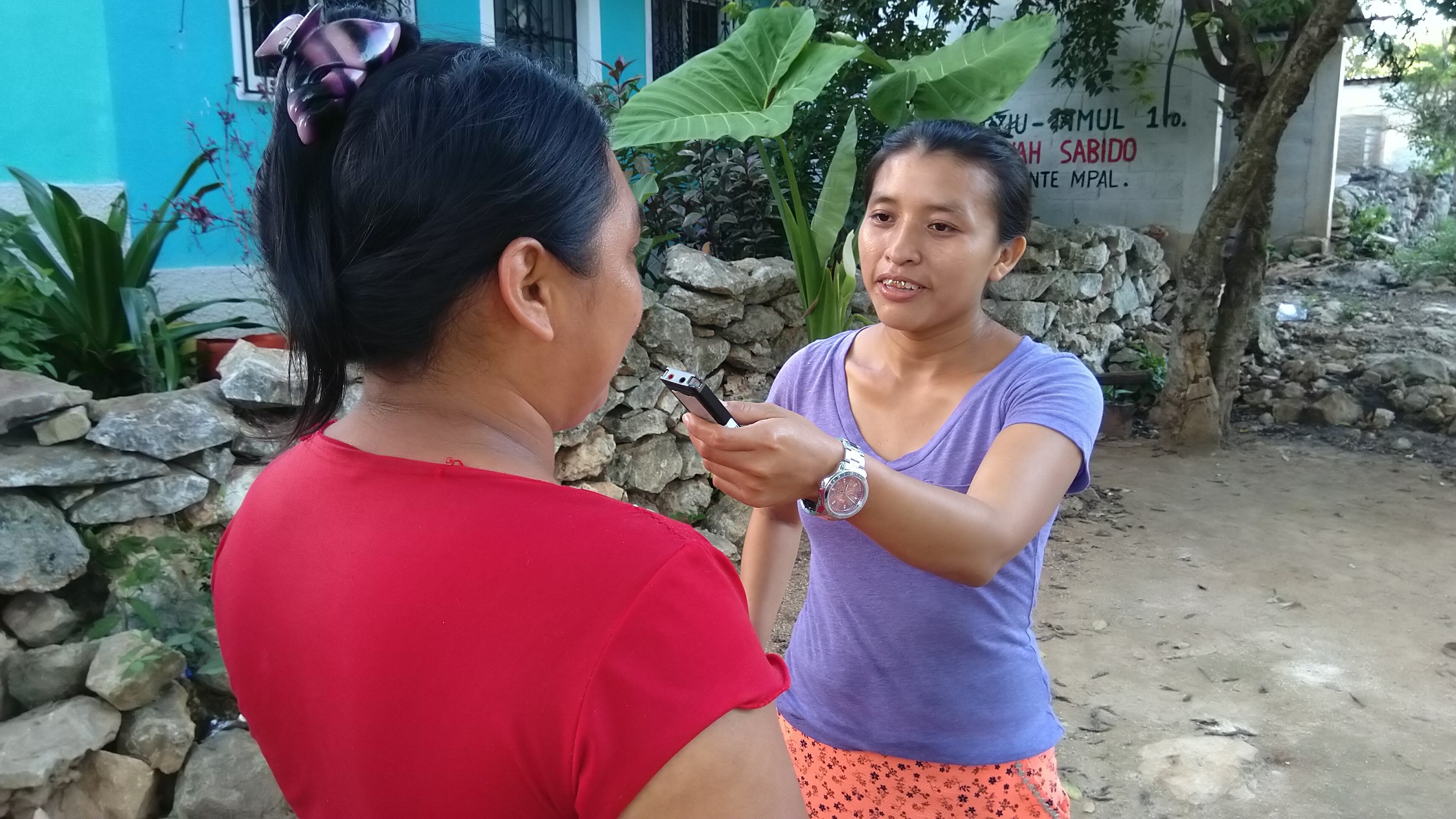
Mildre Chablé recording programs for for radio. October 2019.
We know that this process is not easy. Everyday we face pessimism, with people who do not exercise their rights to express themselves and be heard; with authorities that do not contribute; with community structures that want to improve but at the same time dare to do too little. Our challenge is to convince more people that what we do at the radio station is worthwhile.
